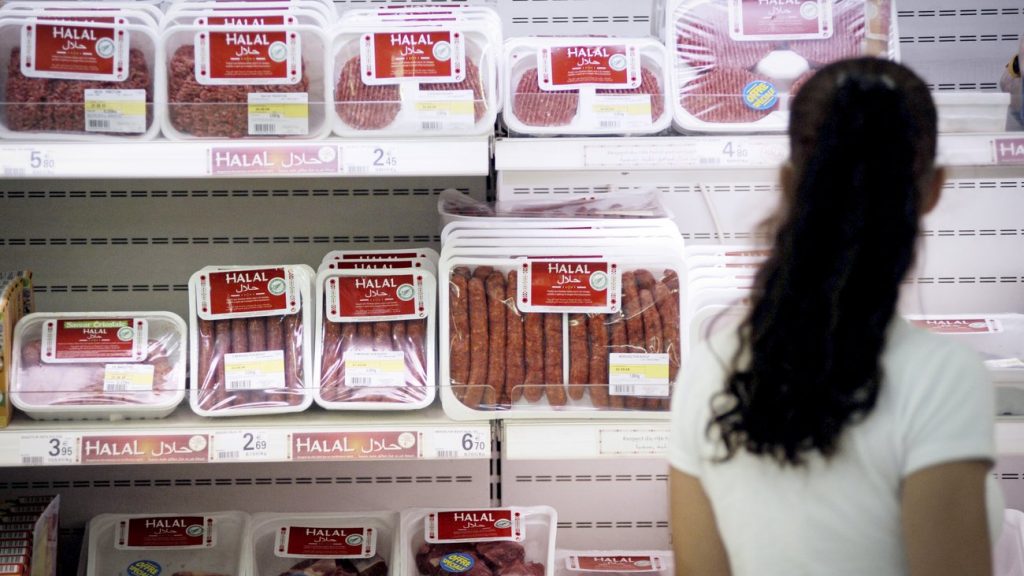International Supermarket News

European supermarkets have long been recognized for their wide range of products catering to diverse consumer preferences. In recent years, there has been a noticeable trend towards the inclusion of halal food products in their aisles. Halal food, prepared in accordance with Islamic dietary laws, is gaining traction in Europe, and the reasons behind this shift are multi-faceted. In this article, we’ll explore why European supermarkets are increasingly looking at halal food as a strategic move.
- Diverse Consumer Base: One of the primary drivers behind European supermarkets’ interest in halal food is the continent’s growing Muslim population. As more Muslim communities settle in Europe, the demand for halal food products has surged. Supermarkets recognize the need to cater to this expanding consumer base.
- Inclusivity and Market Expansion: Supermarkets are acknowledging the importance of inclusivity. By offering halal products, they can serve not only Muslim customers but also appeal to a broader range of consumers who may choose halal for various reasons, including dietary preferences, perceived food safety, and ethical concerns. This inclusivity leads to an expanded customer base.
- Health and Wellness Trends: Halal food is often associated with healthier and cleaner eating. Many consumers, not limited to the Muslim population, perceive halal products as being of higher quality and safer to consume. European supermarkets are keen on aligning with the increasing health and wellness trends in the food industry.
- Halal Certification and Transparency: The introduction of standardized halal certification and labeling systems has provided transparency and trust to consumers. Supermarkets are recognizing the importance of certification in ensuring that products meet Islamic dietary requirements, and they are partnering with certified suppliers to gain consumer trust.
- Diverse Product Offerings: The European halal food market has evolved significantly from its traditional focus on meat and poultry. Supermarkets are now offering a wide range of halal products, including processed foods, snacks, beverages, and even cosmetics. This diversification has allowed them to tap into different segments of the market.
- Globalization and Import Opportunities: The ease of trade and globalization has made it possible for European supermarkets to access a variety of halal products from different parts of the world. This access to global supply chains has enabled them to offer an extensive selection of halal items to their customers.
- Food Tourism and Hospitality: European countries are popular destinations for Muslim tourists. Supermarkets in these regions recognize the significance of providing halal options in restaurants and food outlets. This not only enhances their competitive advantage but also fuels the demand for halal products.
- Economic Opportunities: The growth of the halal food industry in Europe has created economic opportunities for entrepreneurs, investors, and local food producers. This burgeoning industry provides supermarkets with the potential for increased revenue and market share.
- Educational Initiatives and Expertise: Various organizations and culinary schools are offering education and training in halal food preparation and handling. Supermarkets are recognizing the importance of having staff with expertise in this area, ensuring that the products meet halal standards.
- Social and Cultural Acceptance: European society’s growing acceptance of diverse dietary practices, including halal, reflects a more inclusive and multicultural approach to the food industry. Supermarkets are keen to embrace these evolving social and cultural norms.
Conclusion
The integration of halal food into European supermarkets is not just a response to market demand but also a reflection of changing demographics, evolving consumer preferences, and a commitment to inclusivity and diversity. As European supermarkets continue to expand their halal offerings, they are not only meeting the needs of their Muslim customers but also contributing to a more inclusive and dynamic food market. This strategic move is not just a nod to cultural diversity but also a recognition of the economic and culinary opportunities that the halal food industry presents in the ever-evolving European market.



